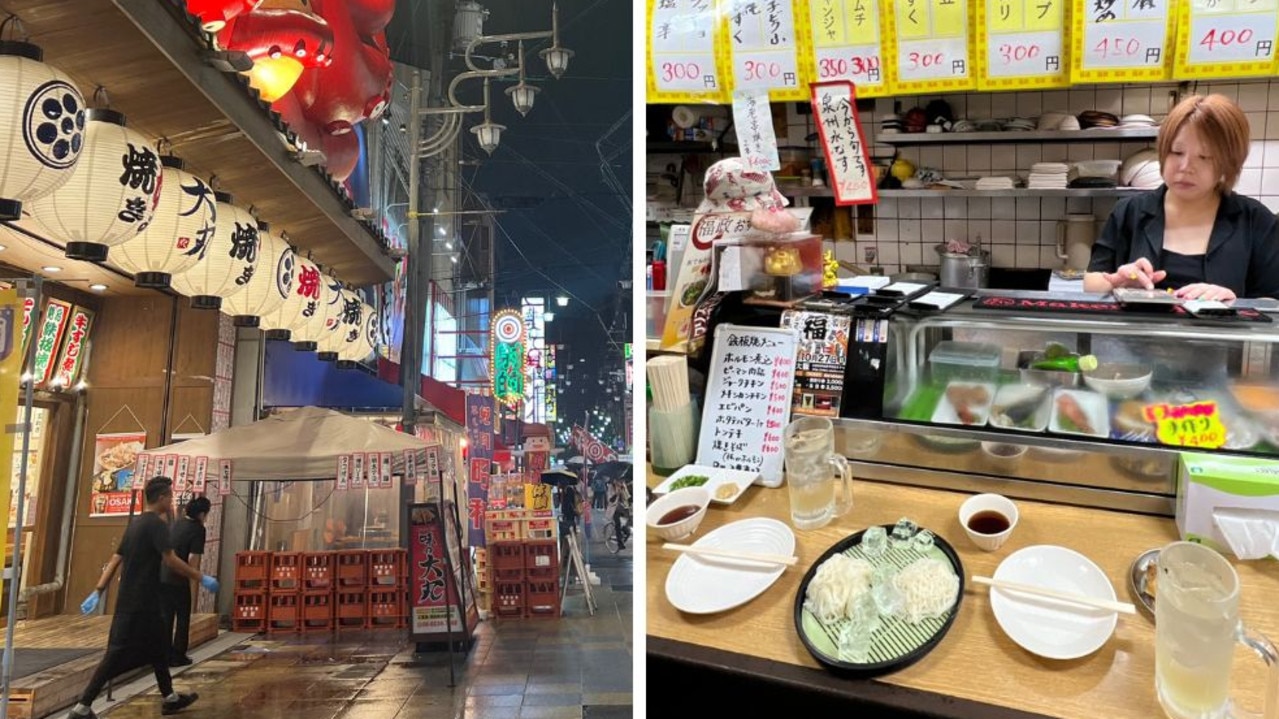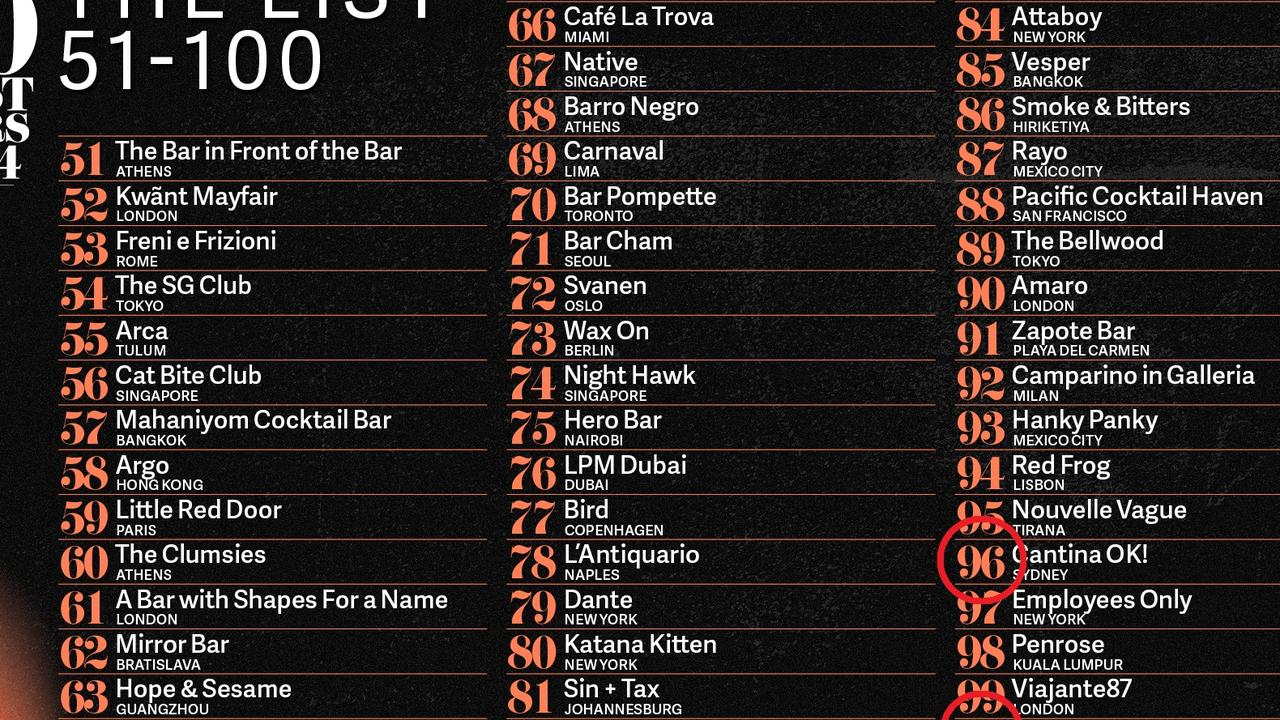‘Is this real?’ Americans lose it over Goon of Fortune game
Americans have just discovered the classic Aussie backyard drinking game ‘Goon of Fortune’ – and they can’t wrap their heads around it.
If you grew up in Australia there is a pretty high chance that, at some point in your life, you have played ‘Goon of Fortune’.
In order to play, all you need is a goon bag, a Hills Hoist clothesline and a group of people willing to endure the taste of Fruity Lexia without juice as a mixer.
If you’re at a high school or uni party in Australia and there’s a clothesline with the ability to spin in the vicinity, it won’t be long before someone calls for a round of Goon of Fortune.
While this game might be second-nature to Aussies, it seems Americans are having a hard time wrapping their heads around this cherished aspect of our culture.
The US magazine Food & Wine recently published an article that included an explanation of how the game works, with one reader finding the write-up so shocking that they took to X – formerly Twitter – to confirm whether it was real.
“Is this real or is Food & Wine pranking me,” they asked. “This sounds literally unbelievable.”
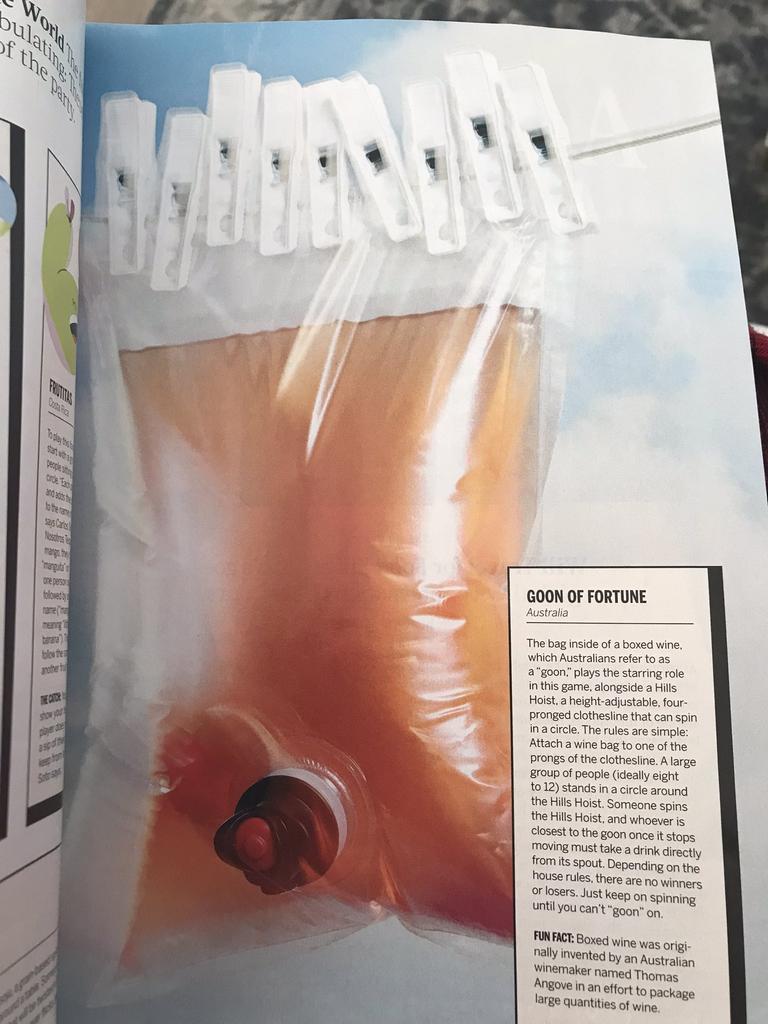
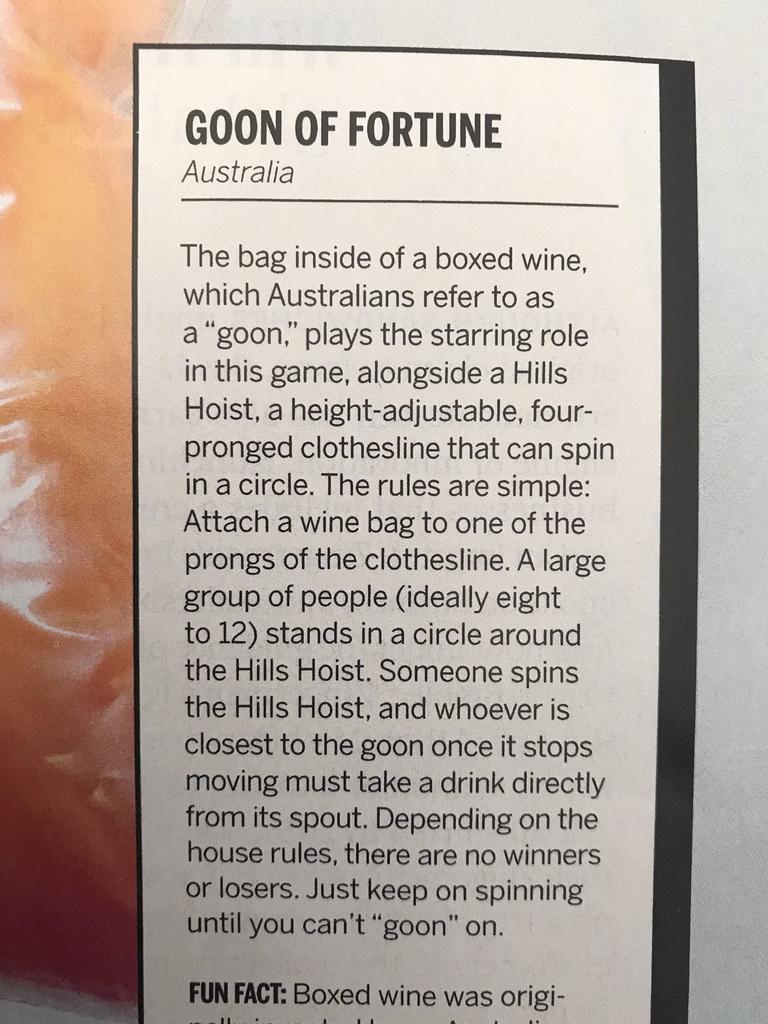
The article said the rules of Goon of Fortune were “simple”, explaining that a wine bag must first be attached to the clothesline, usually using pegs.
“A large group of people (ideally eight to 12) stands in a circle around the Hills Hoist. Someone spins the Hills Hoist, and whoever is closest to the goon once it stops moving must take a drink directly from its spout,” the article reads.
“Depending on the house rules, there are no winners or losers. Just keep on spinning until you can’t ‘goon’ on.”
The post quickly garnered hundreds of comments and has been shared more than 5000 times, with the comment section full of Aussies defending the game and American’s questioning whether they were being lied to.
“The American mind simply cannot comprehend a good time in a suburban back yard with low cost wine,” one person wrote.
Another Aussie described it as the “peak of our culture”, with another saying it was by far the “funniest game ever invented”.
One commenter questioned the line in the article that claimed there were “no winners and losers” in the game, writing: “Untrue everyone who plays Goon of Fortune loses.”
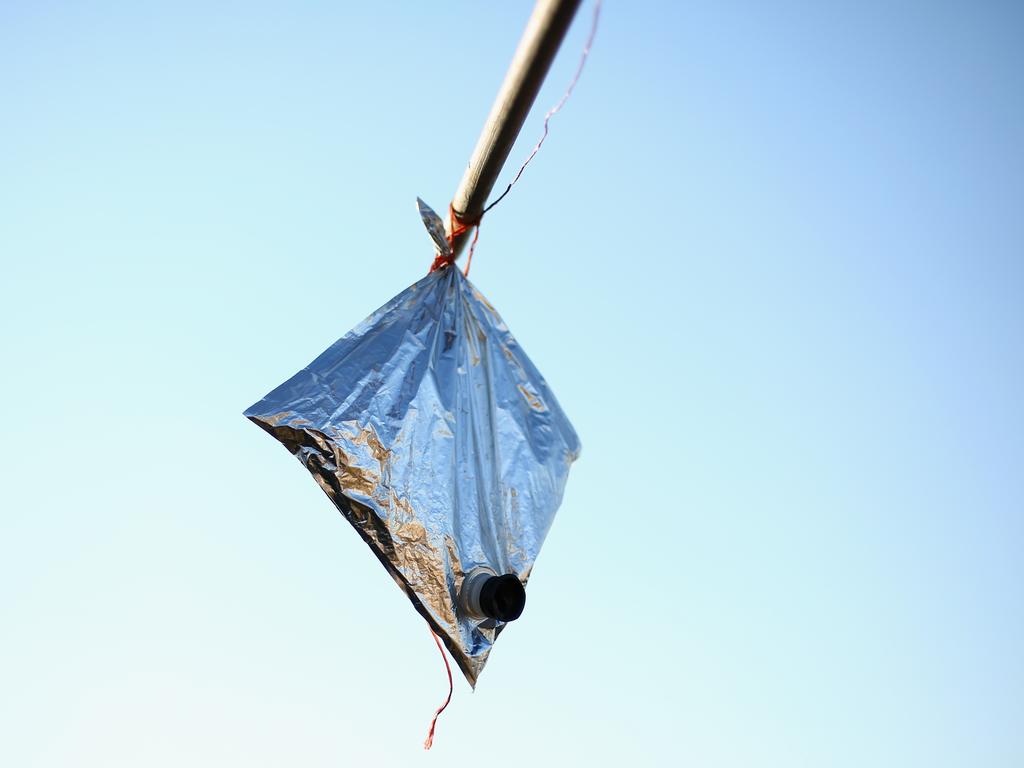
However, user who made the post continued to question why anyone would choose to play such a game, noting it seemed like it would “give you one of the worst hangovers in the world”.
“What is wrong with that island?” they asked.
“I’m dying that Goon of Fortune is a real thing,” another person said.
“I lived in Australia for 10 years. This is very real. And effective,” another wrote, adding that the aim was to “get drunk ASAP”.
Another person claimed they were first introduced to the game by some “cool Australians” they met on a camping trip.
It really isn’t surprising that Australians created a game like Goon of Fortune, given that boxed wine is a proud local invention that was created by South Australian wine maker Tom Angove in 1965.
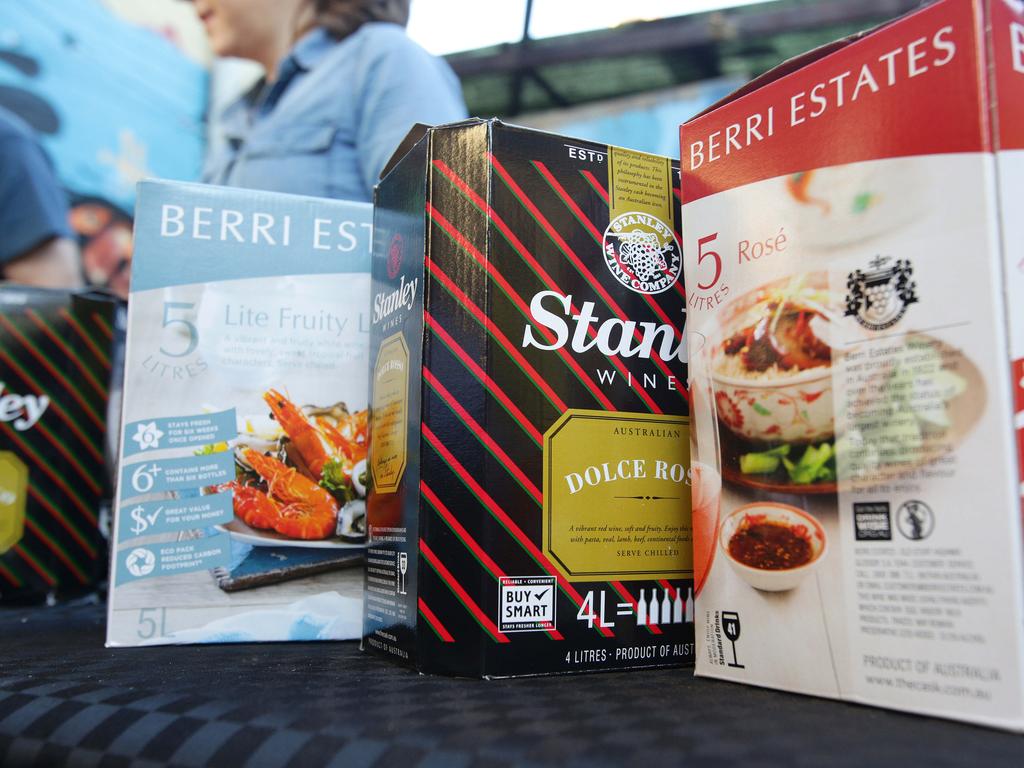
He reportedly got the idea from the flexible packaging of old goat skins used to store wine in biblical times.
“It evolved from that … [he thought] ‘well why don’t we put it in a plastic bag? And if we could support the bag somehow, you know it might work’,” Tom’s son and managing director of Angove Family Winemakers, John Angove, told the ABC in 2015.
“So he put the plastic bag inside a cardboard box and it just grew from that.”
How the term “goon” itself evolved is still a bit unclear.
Some sources suggest it came from the word flagon, which is what wine was traditionally stored in.
From there it is theorised that Aussies began placing emphasis on the second syllable of the word, pronouncing it “fla-goon” before eventually just shortening it to “goon”.
It may also be derived from the Australian English word “goom”, which, according to the Australian National University, was used to reference “methylated spirits as an alcoholic drink”.
This word itself is reportedly thought to derive from a southeast Queensland Aboriginal word (from Gabi-gabi, Waga-waga, and Gureng-gureng) meaning “water, alcohol”, according to ANU.




